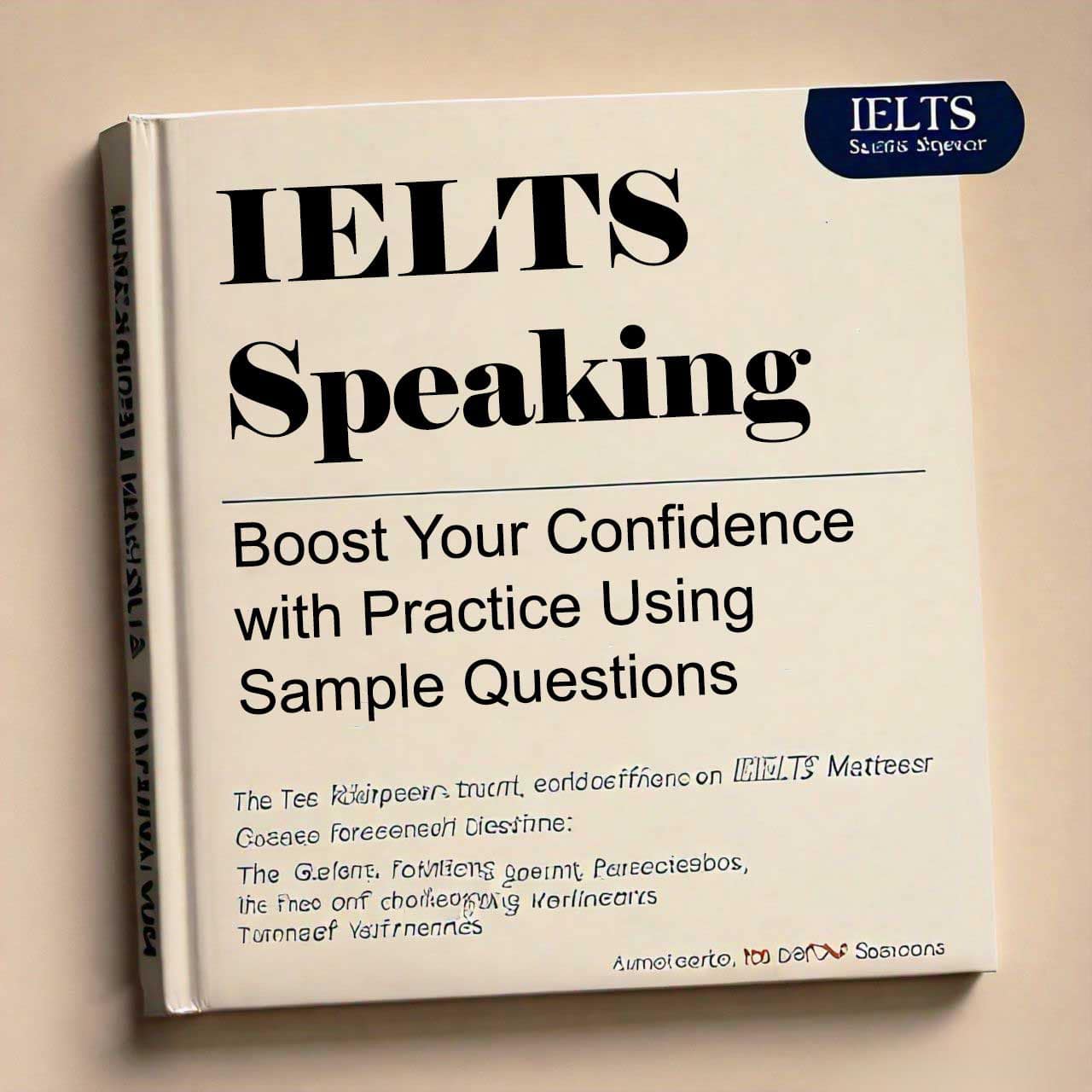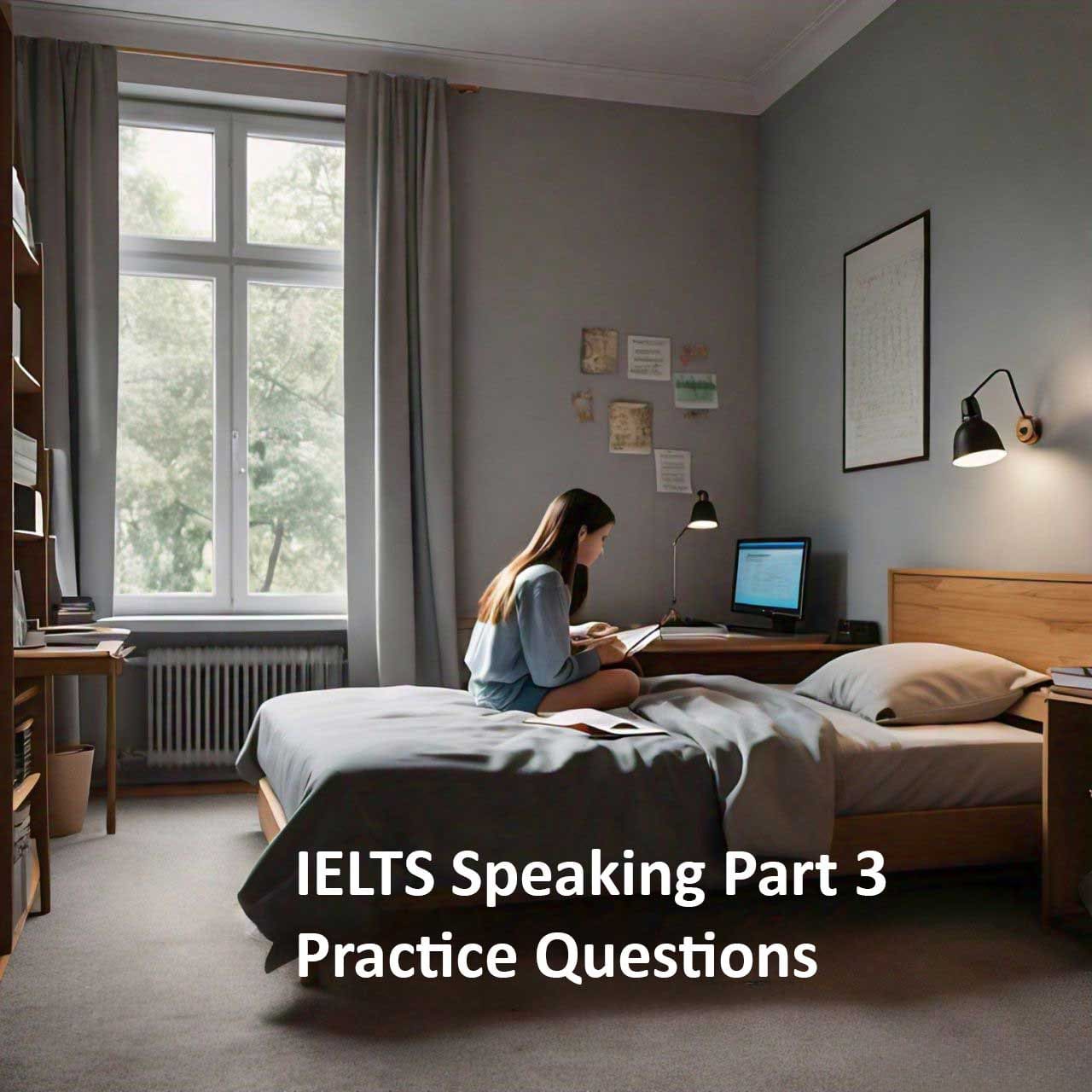The IELTS Speaking test is a crucial component of the overall examination, designed to assess your English speaking skills in a real-life context. This part of the test can be daunting, but with thorough preparation and consistent practice using sample questions, you can significantly enhance your performance and boost your confidence. Here’s a comprehensive guide on how to effectively practice for the IELTS Speaking test using sample questions.
Table of Contents
Understanding the IELTS Speaking Test Format
The IELTS Speaking test is divided into three parts:
– Part 1: Introduction and Interview (4-5 minutes)
– The examiner will introduce themselves and ask you to introduce yourself. You will then answer questions about familiar topics such as your home, family, work, studies, and interests.
– Part 2: Long Turn (3-4 minutes)
– You will be given a task card with a topic and a few guiding questions. You have one minute to prepare your response and then you must speak for 1-2 minutes on the topic. The examiner may ask one or two follow-up questions.
– Part 3: Discussion (4-5 minutes)
– The examiner will ask more abstract and complex questions related to the topic discussed in Part 2. This part tests your ability to express opinions, justify arguments, and discuss issues in depth.
Why Practice with Sample Questions?
Practicing with sample questions offers several benefits:
– Familiarity: It helps you become familiar with the types of questions and topics that may be asked.
– Fluency: Regular practice improves your fluency and coherence, essential components of the speaking test.
– Confidence: Practicing reduces anxiety and boosts your confidence.
– Feedback: It allows you to identify areas for improvement and seek feedback.
Effective Strategies for Practicing with Sample Questions
1. Simulate Test Conditions
Practice under exam conditions to get used to the test format and time constraints. Use a timer for each part of the test to ensure you can manage your time effectively.
2. Record Yourself
Recording your responses allows you to listen back and evaluate your performance. Pay attention to your pronunciation, fluency, grammar, and vocabulary. Identify areas where you can improve and work on them.
3. Expand Your Topics
The IELTS Speaking test covers a wide range of topics. Practice with sample questions on various subjects to build your comfort level with different themes. Topics can include education, technology, culture, environment, and more.
4. Use Realistic Sample Questions
Use official IELTS sample questions or reputable sources for your practice. This ensures that you are practicing with questions that accurately reflect the test format and difficulty level.
5. Seek Feedback
Practicing with a study partner or teacher can provide valuable feedback. They can point out mistakes, suggest improvements, and help you refine your answers.
6. Practice Daily Conversations
Engage in daily conversations in English. This helps improve your spontaneous speaking skills and builds your confidence. Discuss various topics with friends, family, or language partners.
Sample Questions for Practice
Here are some sample questions for each part of the IELTS Speaking test to help you get started:
Part 1: Introduction and Interview
1. What do you do? Do you work or are you a student?
2. Can you describe your hometown?
3. What are your favorite hobbies or pastimes?
4. Do you enjoy cooking? Why or why not?
5. What kind of music do you like?
Part 2: Long Turn
1. Describe a book you have recently read. You should say:
– What the book is about
– Why you read it
– What you learned from it
– And explain why you would or wouldn’t recommend it to others.
2. Describe a place you have visited that you found very interesting. You should say:
– Where the place is
– Why you visited it
– What you did there
– And explain why you found it interesting.
Part 3: Discussion
1. Why do you think people enjoy reading books?
2. In your opinion, what are the benefits of traveling to new places?
3. How has technology changed the way we communicate?
4. What are the main environmental issues facing the world today?
5. Do you think it’s important to learn about other cultures? Why or why not?
Final Tips
Stay Calm and Composed
Remember to stay calm and composed during the test. Take deep breaths if you feel nervous, and remember that the examiner is there to assess your English skills, not to judge you personally.
Speak Clearly and Naturally
Focus on speaking clearly and naturally. Avoid speaking too quickly, and ensure that you pronounce your words correctly.
Be Honest and Authentic
Answer the questions honestly and authentically. If you don’t know the answer to a question, it’s okay to say so and explain why. The examiner is interested in your ability to communicate effectively.
Practice Regularly
Consistent practice is key to success. Dedicate time each day to practicing your speaking skills and reviewing your performance.
By incorporating these strategies and regularly practicing with sample questions, you can enhance your speaking skills, build confidence, and perform well in the IELTS Speaking test. Good luck with your preparation!



